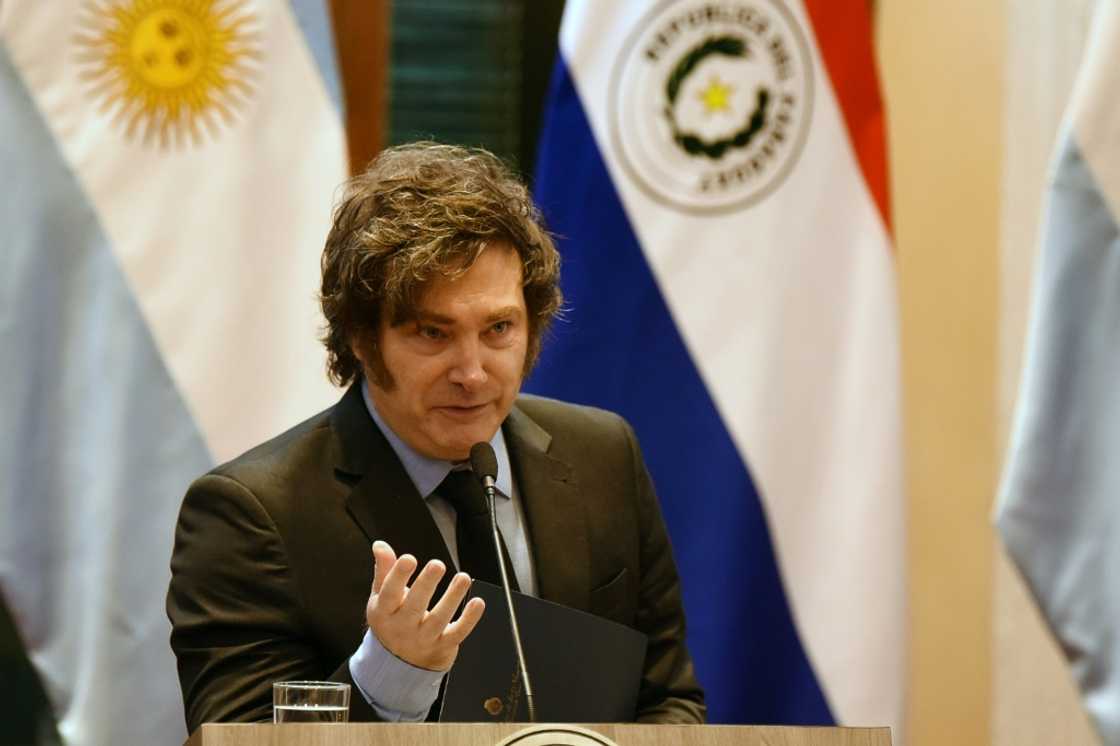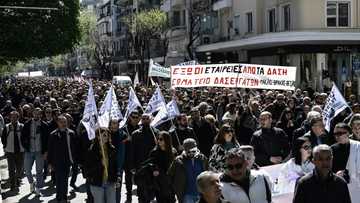Argentina receives $42 bn from international financial institutions

Source: AFP
Three international financial institutions announced $42 billion in fresh support for financially troubled Argentina on Friday, as its president said his country's economy will grow "like never before."
The IMF approved a new four-year $20 billion bailout for the South American nation as the World Bank said it would pump $12 billion into the economy and the Inter-American Development Bank (IDB) announced plans for a $10 billion deal.
Some of the cash is expected to flow as soon as next week to help skint Argentina defend its wobbling peso currency, in a political boon for libertarian President Javier Milei's aggressive efforts to revive the nation's fortunes.
"Argentina will be the country with the strongest economic growth for the coming 30 years," the self-styled "anarcho-capitalist" leader said in a TV address, adding that the economy will grow "like never before."
Finance Minister Luis Caputo had earlier said that "within 60 days" Buenos Aires expects to receive $19 billion from the IMF, World Bank and other sources including the IDB.
That figure will include an "immediate" first tranche of $12 billion from the IMF, the institution's board said in a statement.
The program is "a vote of confidence in the Government's determination to advance reforms, foster growth & deliver higher standards of living for the Argentine people," IMF boss Kristalina Georgieva posted on X, hailing Milei's "impressive progress in stabilizing the economy."
For its part, the World Bank said $1.5 billion would be released to Argentina immediately.
Under-pressure peso
It is the 23rd time the IMF has bailed out Argentina since it became a member of the Washington-based institution in 1956.
Caputo had earlier said that the IMF money would allow the "recapitalization of the Central Bank... and continue the disinflation process."
It would also, starting Monday, "allow us to end the exchange controls that have done so much harm" to Argentines, and "affected the normal functioning of the economy," said the minister.
In place of exchange controls in place since 2019, the peso will be allowed to float within a band of between 1,000 and 1,400 pesos to the dollar, the Central Bank added in a statement.
On Friday, the peso traded at 1,097 to the dollar at the official rate, and at 1,375 at the unofficial "blue" rate.
The Central Bank said the $200-per-month limit on Argentine citizens accessing greenbacks will also be lifted.
Under the deal, the differential exchange rate for exporters will be eliminated, while "the distribution of profits to foreign shareholders is allowed starting from the financial years beginning in 2025, and the deadlines for the payment of foreign trade operations are relaxed," it added.
Inflation down
"Milei needs this deal like he needs air," said Belen Amadeo, a political scientist at the University of Buenos Aires.
"He needs it to back up his economic offer, give himself more room to maneuver, because if instability sets in and inflation rises, insecurity will reach the population and they will flee immediately to the dollar."
Argentina, Latin America's third-biggest economy with a record of economic crises, hyperinflation and defaults, already owes the IMF $44 billion under a 2018 loan agreement -- the lender's biggest ever -- on which it has since renegotiated the repayment terms.
Milei, the country's budget-slashing president in office since December 2023, has sought a new loan to cancel Treasury debt to the Central Bank, wipe out stubborn inflation, boost growth and replenish foreign reserves.
The prospect of another IMF loan has caused a run on the peso, prompted by fears -- which Milei has rebuffed -- that a new deal could entail a currency devaluation.
The IMF has expressed approval of Milei's attempts to curb inflation, which came in higher at 3.7 percent for the month of March compared to 2.4 percent in February.
Annual inflation came in at 55.9 percent in March -- down from 211 percent at the end of 2023, but still one of the highest rates in the world.
Milei has fired tens of thousands of public sector workers, halved the number of government ministries and vetoed inflation-aligned pension increases to curb public spending.
Last year, Argentina recorded its first budget surplus in a decade, but the collateral damage has been a loss of purchasing power, jobs and consumer spending.
US Treasury Secretary Scott Bessent is due next week to visit Argentina and "affirm the United States' full support for Argentina's bold economic reforms," a statement from his office said.
PAY ATTENTION: Сheck out news that is picked exactly for YOU ➡️ find the “Recommended for you” block on the home page and enjoy!
Source: AFP






